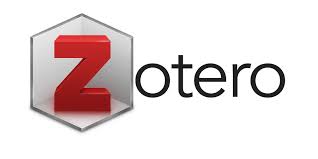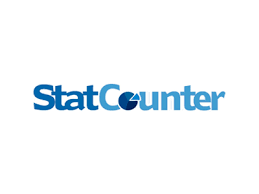Kemampuan Pemodelan Matematika Melalui Pendekatan Pendidikan Matematika Realistik Indonesia (PMRI) di SMK Yayasan Bakti Prabumulih
DOI:
https://doi.org/10.29240/ja.v3i1.2689Keywords:
Mathematical Modeling Ability, Indonesian Realistic Mathematics EducationAbstract
This study aims to determine and describe the ability of mathematical modeling through the Indonesian Realistic Mathematics Education approach. The Indonesian Realistic Mathematical Education approach is a learning approach that uses real problems as the beginning of learning mathematics so that it is skilled in solving problems, so as to obtain essential knowledge and concepts from the learning material. The research method used in this research is a one-shot case study experiment. This research was conducted in class XI.TKJ SMK Yayasan Bakti Prabumulih Foundation in the 2020/2021 academic year, totaling 30 students. This type of research is descriptive quantitative. Data collection in this study used a test instrument in the form of description questions based on indicators of mathematical modeling ability. Based on the results of the study, it was found that the mathematical modeling skills of students through the Indonesian Realistic Mathematics Education approach reached an average percentage of 75.96%.
Downloads
References
Akramunnisa, & Sulestry, A. I. (2016). Analisis Kemampuan Menyelesaikan Masalah Matematika Ditinjau Dari Kemampuan Awal Tinggi Dan Gaya Kognitif Field Independent ( Fi ). Pedagogy : Jurnal Pendidikan Matematika, 1(2), 46–56. http://journal.uncp.ac.id/index.php/Pedagogy
Andresen, M. (2009). Teaching To Reinforce The Bonds Between Modelling And Reflecting. Mathematical Applications And Modelling In The Teaching And Learning Of Mathematic, 73.
Ayu, N. S., & Rakhmawati, F. (2019). Analisis Kemampuan Peserta Didik Menyelesaikan Soal Matematika Bentuk Cerita Di Kelas Viii Mts. Negeri Bandar T.A. 2017/2018. AXIOM : Jurnal Pendidikan Dan Matematika, 8(1). https://doi.org/10.30821/axiom.v8i1.5451
Idris, & Silalahi, K. (2016). Penerapan Pendekatan Pendidikan Matematika Realistik (PMR) untuk Meningkatkan Kemampuan Penyelesaian Soal Cerita. Jurnal EduMatSains, 1(1), 73–82.
Khasanah, U. (2015). Kesulitan Menyelesaikan Soal Cerita Matematika Pada Peserta didik SMP.
Lusiana, L. (2019). Pemecahan Masalah melalui Pemodelan Matematika dalam Aplikasi Kalkulus Integral. National Conference on Mathematics Education, November, 1–9.
Mawaddah, S., & Anisah, H. (2015). Kemampuan Pemecahan Masalah Matematis Peserta didik Pada Pembelajaran Matematika dengan Menggunakag) di SMPn Model Pembelajaran Generatif (Generative Learning) di SMP. EDU-MAT: Jurnal Pendidikan Matematika, 3(2), 166–175. https://doi.org/10.20527/edumat.v3i2.644
Nindyakomalig, R., Gusmania, Y., & Husna, A. (2019). Efektivitas Pendekatan Pmri Terhadap Kemampuan Pemecahan Masalah Matematis Peserta didik Kelas X Smkit Darussalam Boarding School. Phytagoras, 8(1), 23–31. https://www.journal.unrika.ac.id/index.php/jurnalphythagoras/article/view/1774
Ningrum, L. S. (2013). Analisis Kemampuan Peserta Didik Menyelesaikan Soal Matematika Dalam Bentuk Cerita Pokok Bahasan Barisan Dan Deret Pada Peserta Didik Kelas Xii Sma Al-Islam 3 Surakarta. 53(9), 1689–1699.
Pitriani. (2016). Kemampuan Pemodelan Matematika Dalam Realistic Mathematics Education (RME). 2(June), 65–82.
Zulkardi, & Putri, R. I. I. (2010). Pengembangan blog support untuk membantu peserta didik dan guru matematika Indonesia belajar pendidikan matematika realistic Indonesia (PMRI). Jurnal Inovasi Perekayasa Pendidikan (JIPP), 2(1), 1–24.
Downloads
Additional Files
Published
Issue
Section
Citation Check
License
Authors who publish with ARITHMETIC: Academic Journal of Math agree to the following terms:
- Authors retain copyright and grant the journal right of first publication with the work simultaneously licensed under a Creative Commons Attribution-NonCommercial-ShareAlike 4.0 International License (CC BY-NC-SA 4.0) that allows others to share the work with an acknowledgment of the work's authorship and initial publication in this journal.
- Authors are able to enter into separate, additional contractual arrangements for the non-exclusive distribution of the journal's published version of the work (e.g., post it to an institutional repository or publish it in a book), with an acknowledgment of its initial publication in this journal.
- Authors are permitted and encouraged to post their work online (e.g., in institutional repositories or on their website) prior to and during the submission process, as it can lead to productive exchanges, as well as earlier and greater citation of published work (See The Effect of Open Access).







